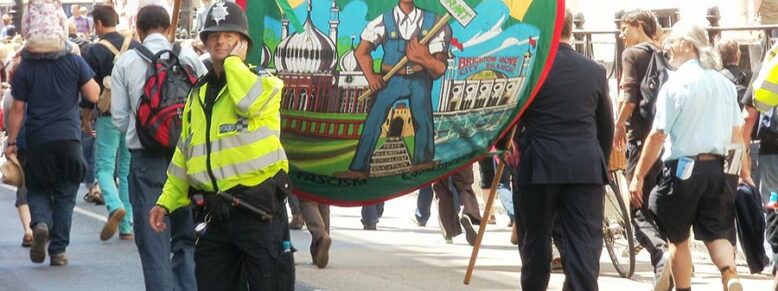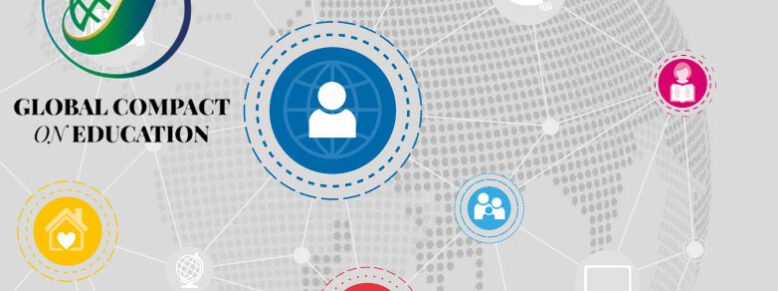St. Mary’s University hosts the Centre for the Art of Dying Well, directed by Maggie Doherty: artofdyingwell.org Maggie recently appeared on the Radio 4 programme, Beyond Belief.
Read more >>

St. Mary’s University hosts the Centre for the Art of Dying Well, directed by Maggie Doherty: artofdyingwell.org Maggie recently appeared on the Radio 4 programme, Beyond Belief.
Read more >>

Fr Manuel Barrios Prieto, Secretary General of COMECE (Commission of the Bishops’ Conferences of the European Union), introduces the new document, published by the Catholic Bishops’ Conference of England and Wales, Love the Stranger.
Read more >>
“the right of association is a natural right of the human being, which therefore precedes his or her incorporation into political society…” Centesimus annus, 7, emphasising Rerum novarum
Read more >>
The band “The Strawbs”, perhaps most famous for “Now, I’m a Union Man”, was formed at St. Mary’s before it was a university (they were originally called “The Strawberry Hill Boys”). The lyrics of that song, don’t really accord with Catholic social teaching on unions (“I say what I think, that the company stinks”…”With a hell of a shout, it’s ‘Out brothers, out!’ And the rise of the factory’s fall”…“And I always get my way If I strike for higher pay”…), but it is a good song and forms an interesting preface to an article on Catholic social teaching and trade unions.
Read more >>
Listening to the Archbishop of Canterbury speak on ‘reconciliation’ the other day at Digby Stuart College, I was reminded of my time working as the first ever faith advisor appointed at Cabinet level in the UK. While the current Archbishop had worked out a series of steps by which to address reconciliation in a variety of contexts, back then the argument was who best, and how best, for faith voices to be heard or engaged by government as a prelude to building up social harmony and collaboration in UK society. The whole approach was, for a while, qualified by long lists of ‘who not to talk to’ even if they were going to be key to the future.
Read more >>
What is modern slavery? The UK introduced the Modern Slavery Act into legislation in England and Wales in 2015, partly in response to the growing referrals of suspected cases into the National Referral Mechanism (NRM). The Act defines slavery as servitude and forced or compulsory labour. This incorporates a broad range of situations, including forced criminality; sexual exploitation; removal of organs; and securing services by force, threat or abuse, including from children and vulnerable people.
Read more >>
This week’s blog post is an extract from Pope Francis’s message for the World Day of the Poor on 4th November 2022. The full message can be found at: https://www.cbcew.org.uk/papal-message-world-day-of-the-poor-2022/
Read more >>
This week’s blog post is the address of Pope Francis to the 25th Anniversary meeting of the Federation of Catholic Family Associations in Europe in Clementine Hall, the Vatican on 10th June 2022. The theme was “The Urgent Need to Develop Family Networks”. For brevity, some of the formalities have been edited out.
Read more >>
This is the second of two posts on how Catholic economists see their work. The posts are published in celebration of World Catholic Education Day on May 26, 2022, and within the context of the Global Compact on Education called for by Pope Francis. Quentin Wodon is a Lead Economist at the World Bank and a Distinguished Research Affiliate with the College of Business at Loyola University New Orleans.
Read more >>
Part I of this post looks at the background to this subject. It is the first of two posts on how Catholic economists see their work. The posts are published in celebration of World Catholic Education Day on May 26, 2022, and within the context of the Global Compact on Education called for by Pope Francis.
Read more >>